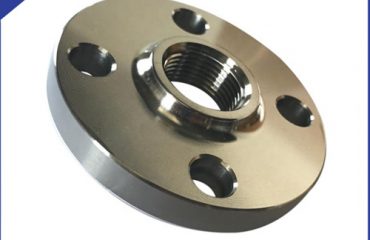
Choosing the right stainless steel elbow for food processing industries is crucial to ensure the highest level of food safety and hygiene. Stainless steel elbows play a significant role in the smooth operation of food processing systems, preventing contaminants from entering and maintaining the integrity of the piping system. Here are some factors to consider when choosing the right stainless steel elbow for food processing industries.
- Material Grade: The material grade of stainless steel is vital as it determines the resistance to corrosion, durability, and suitability for food processing environments. The most recommended material grade for food processing industries is Type 316 stainless steel, also known as 316 SS. This grade offers excellent corrosion resistance and is resistant to both organic and inorganic chemicals commonly found in food processing.
- Surface Finish: The surface finish of stainless steel elbows is essential for the food processing industry. A smooth and polished surface finish minimizes the adhesion of bacteria, dirt, and other contaminants, making it easier to clean and maintain hygiene. A typical requirement for food processing industries is a surface finish of 32 microinches or better.
- Dimensions: The dimensions of the stainless steel elbow should be compatible with the existing piping system. Consider the angle of the elbow, commonly available in 45 degrees and 90 degrees, depending on the specific needs of your food processing system. Additionally, ensure that the elbow has the appropriate diameter to match the rest of the piping system.
- Welding: Stainless steel elbows are usually welded to the piping system. It is crucial to consider the welding method used and ensure that it complies with sanitary welding standards. Welding should be done using a TIG (Tungsten Inert Gas) welding process to ensure clean and smooth welds, avoiding any crevices or voids that could harbor bacteria or other contaminants.
- Certifications and Compliance: When choosing a stainless steel elbow for food processing, ensure that it meets relevant industry standards and certifications. Look for certifications such as NSF/ANSI standard 51 for food equipment materials, NSF/ANSI standard 61 for materials used in contact with drinking water, and FDA (Food and Drug Administration) compliance for materials used in food processing.
- Cleanability and Maintenance: The ease of cleaning and maintenance is a crucial factor for the food processing industry. Choose a stainless steel elbow with minimal crevices, as this reduces the chances of bacterial growth and makes it easier to clean. Additionally, consider the availability of cleaning systems such as CIP (Clean-in-Place) or SIP (Steam-in-Place) for efficient and effective cleaning.
- Supplier Reputation and Support: Selecting a reputable supplier is essential to ensure quality products and reliable customer support. Look for suppliers with experience in supplying stainless steel elbows for the food processing industry and those who understand the unique requirements and challenges of food processing environments.
Selecting the right stainless steel elbow for food processing industries involves considering factors such as material grade, surface finish, dimensions, welding method, certifications, cleanability, and supplier reputation. By carefully evaluating these factors, food processing industries can ensure the highest level of food safety, hygiene, and operational efficiency.
 Language
Language Espanol
Espanol English
English Italian
Italian عربى
عربى
 Skype: chinamaker99
Skype: chinamaker99  Tel: 86-316-5120812
Tel: 86-316-5120812 Email:
Email:  Whatsapp:
Whatsapp: 

